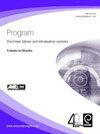可穿戴专家系统开发:未来的定义、模型和挑战
Q Social Sciences
Program-Electronic Library and Information Systems
Pub Date : 2017-09-13
DOI:10.1108/PROG-09-2016-0061
引用次数: 15
摘要
目的可穿戴专家系统(WES)是一种设计和实现的专家系统,用于从可穿戴设备获取输入并向其提供输出。其显著特征包括领域专家和用户之间的直接合作,以及与专门用于动态更新知识库的知识维护系统的交互,以照顾不断发展的场景。本文旨在讨论这些问题。设计/方法论/方法WES开发方法基于基于知识工件的知识获取框架(KAFKA)框架。KAFKA采用了多个知识工件,每个工件都致力于获取和管理特定类型的知识。KAFKA框架是从概念和计算两个角度介绍的。给出了一个例子,展示了在这个框架内分类法、贝叶斯网络和基于规则的系统的相互作用。还对框架的可用性进行了实验评估。研究结果WES最有趣的特征是其随着时间的推移而进化的能力,这是由于测量输入变量的新值和检测新的输入事件,可用于修改、扩展和维护知识库,并表示以随时间变化为特征的领域。独创性/价值WES是一个新的、具有挑战性的概念,涉及用户开发自己的决策支持系统的可能性,并在环境中出现新事件时根据新事件进行更新。该系统完全支持领域专家和在知识工程方法方面没有特殊技能的用户在任何地方和必要时创建、维护和利用他们的专家系统。本文章由计算机程序翻译,如有差异,请以英文原文为准。
Wearable expert system development: definitions, models and challenges for the future
Purpose
A wearable expert system (WES) is an expert system designed and implemented to obtain input from and give outputs to wearable devices. Among its distinguishing features are the direct cooperation between domain experts and users, and the interaction with a knowledge maintenance system devoted to dynamically update the knowledge base taking care of the evolving scenario. The paper aims to discuss these issues.
Design/methodology/approach
The WES development method is based on the Knowledge Acquisition Framework based on Knowledge Artifact (KAFKA) framework. KAFKA employs multiple knowledge artifacts, each devoted to the acquisition and management of a specific kind of knowledge. The KAFKA framework is introduced from both the conceptual and computational points of view. An example is given which demonstrates the interaction, within this framework, of taxonomies, Bayesian networks and rule-based systems. An experimental assessment of the framework usability is also given.
Findings
The most interesting characteristic of WESs is their capability to evolve over time, due both to the measurement of new values for input variables and to the detection of new input events, that can be used to modify, extend and maintain knowledge bases and to represent domains characterized by variability over time.
Originality/value
WES is a new and challenging concept, dealing with the possibility for a user to develop his/her own decision support systems and update them according to new events when they arise from the environment. The system fully supports domain experts and users with no particular skills in knowledge engineering methodologies, to create, maintain and exploit their expert systems, everywhere and when necessary.
求助全文
通过发布文献求助,成功后即可免费获取论文全文。
去求助
来源期刊

Program-Electronic Library and Information Systems
工程技术-计算机:信息系统
CiteScore
1.30
自引率
0.00%
发文量
0
审稿时长
>12 weeks
期刊介绍:
■Automation of library and information services ■Storage and retrieval of all forms of electronic information ■Delivery of information to end users ■Database design and management ■Techniques for storing and distributing information ■Networking and communications technology ■The Internet ■User interface design ■Procurement of systems ■User training and support ■System evaluation
 求助内容:
求助内容: 应助结果提醒方式:
应助结果提醒方式:


